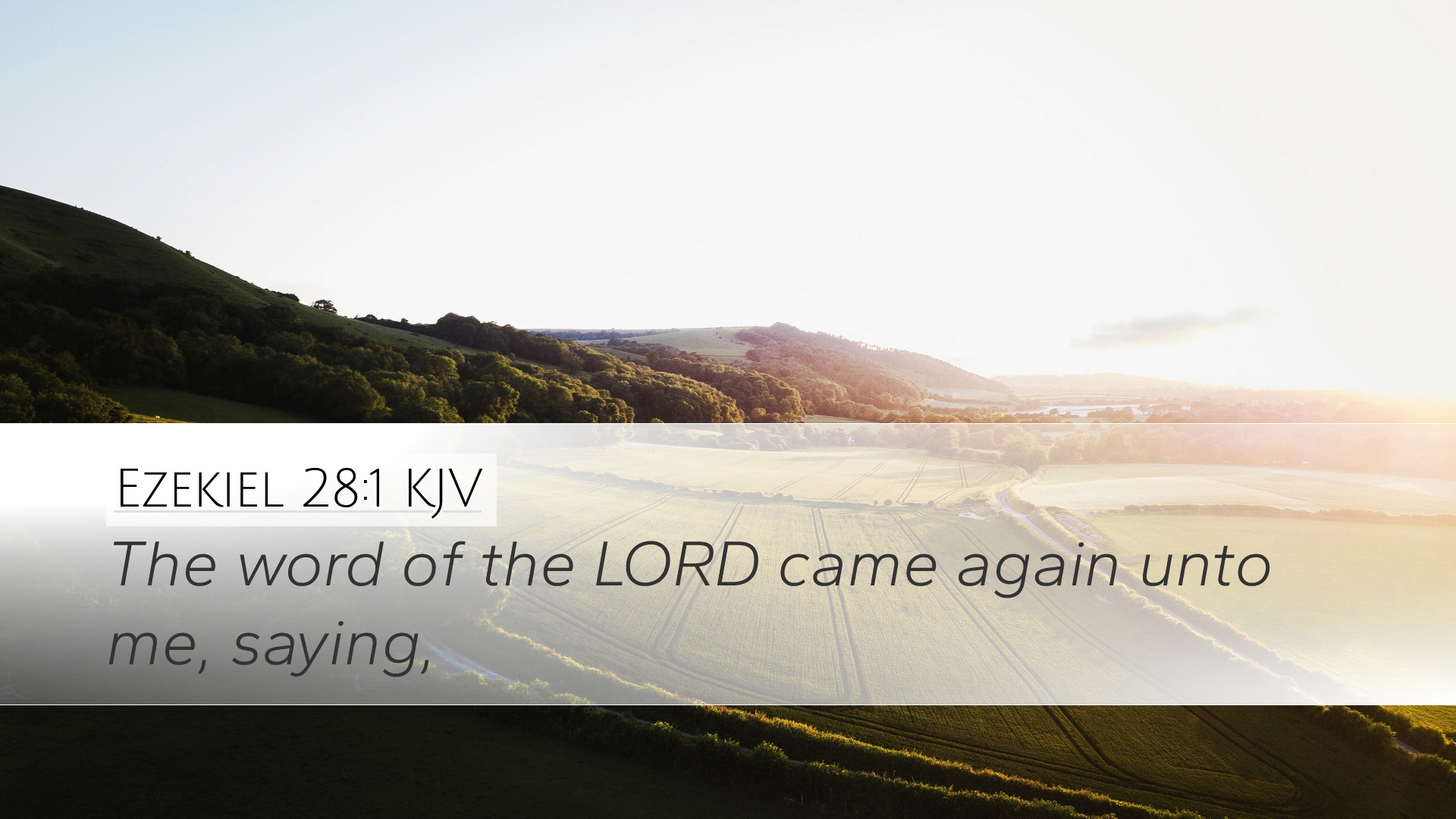Ezekiel 28:1 - Commentary Summary
This commentary delves into Ezekiel 28:1, a verse that initiates a significant proclamation against the ruler of Tyre. The insights drawn from various public domain commentaries, including those by Matthew Henry, Albert Barnes, and Adam Clarke, provide a multifaceted understanding of the text.
Contextual Overview
Ezekiel 28 is situated in a broader narrative concerning the judgments of God against various nations and cities surrounding Israel. The chapter shifts its focus to Tyre, a prosperous and powerful Phoenician city known for its commerce and trade. The opening verse serves as a preamble to the Divine judgment that follows, establishing the tone for the declarations against both the earthly ruler and the symbolic representation of the Prince of Tyre.
Verse Breakdown
The verse reads:
"The word of the Lord came again unto me, saying," (Ezekiel 28:1)
The Nature of Divine Communication
Henry emphasizes the consistency and authority of God’s communication with His prophets. Ezekiel, described as a watchman, receives repeated words from the Lord, signifying both urgency and the importance of the impending announcement. This reiteration reminds the reader of God's sovereign control over prophecy and His concern for conveying judgment.
Prophetic Authority
Barnes highlights the prophetic nature of Ezekiel's role, which is to deliver God’s message directly to the people. The phrase "the word of the Lord came unto me" underscores the divine source of Ezekiel's admonitions, affirming that the message is not based on human opinion but on God's sovereign will. This authority is paramount for understanding the weight of the coming oracle against Tyre.
The Ruler of Tyre
While the verse itself acts as an introduction, it sets the stage for the descriptions of the ruler's pride and subsequent downfall in verses to come. Clarke notes that the ruler of Tyre embodies a spirit of arrogance fueled by prosperity. This pride leads to a false sense of security, and it will ultimately attract divine judgment.
Symbolism and Theological Implications
As we interpret Ezekiel 28:1, we must consider its implications beyond the immediate historical context. Many theologians, including Henry, suggest that the ruler of Tyre symbolizes a broader spiritual conflict, representative of human pride against the sovereignty of God. The theological implications extend to the reader's understanding of God’s absolute authority over nations and leaders.
Historical and Cultural Insights
Tyre's significance in the ancient Near East was considerable due to its wealth from trade and maritime power. Clarke provides insight into Tyre's cultural impact, linking it with idolatry and economic pride, which set the stage for divine judgment. The city's historical context, marked by ostentation and moral decay, serves as essential background to the text.
Lessons for Contemporary Readers
The lessons drawn from Ezekiel 28:1 resonate through the ages. For pastors and theologians, the core message warns against the dangers of pride and self-reliance. Barnes asserts that all power and riches come from God alone and that those in positions of authority must recognize their dependence on Him.
Call to Humility
There is a profound call to humility embedded in this text. As scholars reflect on the passage, they recognize a need in the modern church to confront any tendencies toward pride or moral failure, particularly among leaders. The character of God—righteous and just—stands in stark contrast to the arrogance exhibited by the earthly ruler of Tyre.
Conclusion
In summary, Ezekiel 28:1 serves as a pivotal entrance into a significant prophecy concerning the ruler of Tyre. The insights from Matthew Henry, Albert Barnes, and Adam Clarke underscore a rich tapestry of meaning—focusing on divine authority, the perils of pride, and the call to humility. As leaders and scholars engage with this text, they are reminded of God's sovereignty and the necessity of yielding to His will, safeguarding against the temptations of pride and self-sufficiency.
Reflection Questions
- What is the significance of God's repeated communication with Ezekiel in your life?
- How does the warning against the ruler of Tyre apply to contemporary leadership within the church?
- In what ways can we actively seek to avoid the pitfalls of pride described in this text?


